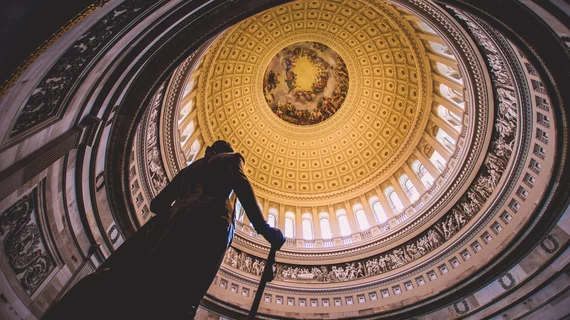House lawmakers slam administration’s ‘unacceptable’ implementation of the No Surprises Act
House lawmakers are sharply criticizing the Biden administration’s implementation of the No Surprises Act, urging for reforms to make the landmark law more in line with its original intent.
Republican representatives voiced their “serious concerns” in a Nov. 9 letter to leaders in the departments of Health and Human Services, Labor and Treasury. The House Ways & Means Committee recently held a hearing on the legislation’s roll out, in which providers complained of long delays in processing claims and an arbitration process skewed in favor of insurers.
“The biased interpretation of the qualified payment amount has created serious consequences for medical providers of all sizes,” the 25 Republican members of the committee wrote. “Small medical practices in rural and underserved communities that had been in-network with health insurers are now receiving network cancellations. Even larger providers, like hospitals, are suffering similar consequences from the downward pressure of reduced reimbursement from the skewed QPA.”
Lawmakers urged the departments to “swiftly revisit the final rule,” ensuring that it aligns with the law as written. They also want the administration to take “immediate steps” to ensure that the NSA’s transparency provisions are a “reality for patients.”
“We are glad that millions of Americans have been protected from surprise medical bills, but we remain disappointed with the outstanding challenges that face all aspects of our healthcare system,” House representatives wrote. “We cannot emphasize strongly enough the depths of the departments’ failure to implement the No Surprises Act as written in statute and as Congress intended.”
The letter comes after the departments recently issued a proposed rule aimed at strengthening the dispute-resolution process under the NSA. If finalized, the rule would seek to improve communication between health insurers, physicians and the independent entities that arbitrate disagreements over out-of-network payments. The federal government also wants to adjust timelines for the independent dispute resolution process, along with establishing new criteria for “batching” together similar IDR requests. Officials also would seek to change the administrative fee structure, hoping to “improve accessibility of the process.”
On Nov. 10, the American College of Radiology issued a detailed summary exploring the pros and cons of the proposal. ACR said it is “encouraged” that the rule change would provide expanded batching regulations, reduce the administrative fee for certain claim disputes, and require insurers to provide claim eligibility info with initial payments.
“These are positive changes recommended by many specialty societies, including ACR,” the trade group said in a Friday news update. “The college still has issue with some details within the proposed rule, including limiting batching to 25-line items in a single dispute,” it added
ACR said it plans to submit feedback to the administration within the 60-day comment window.

